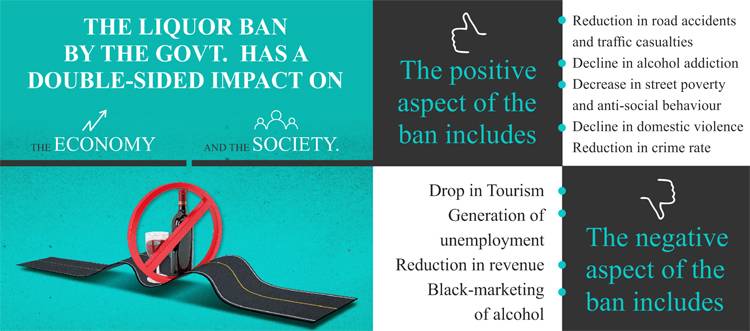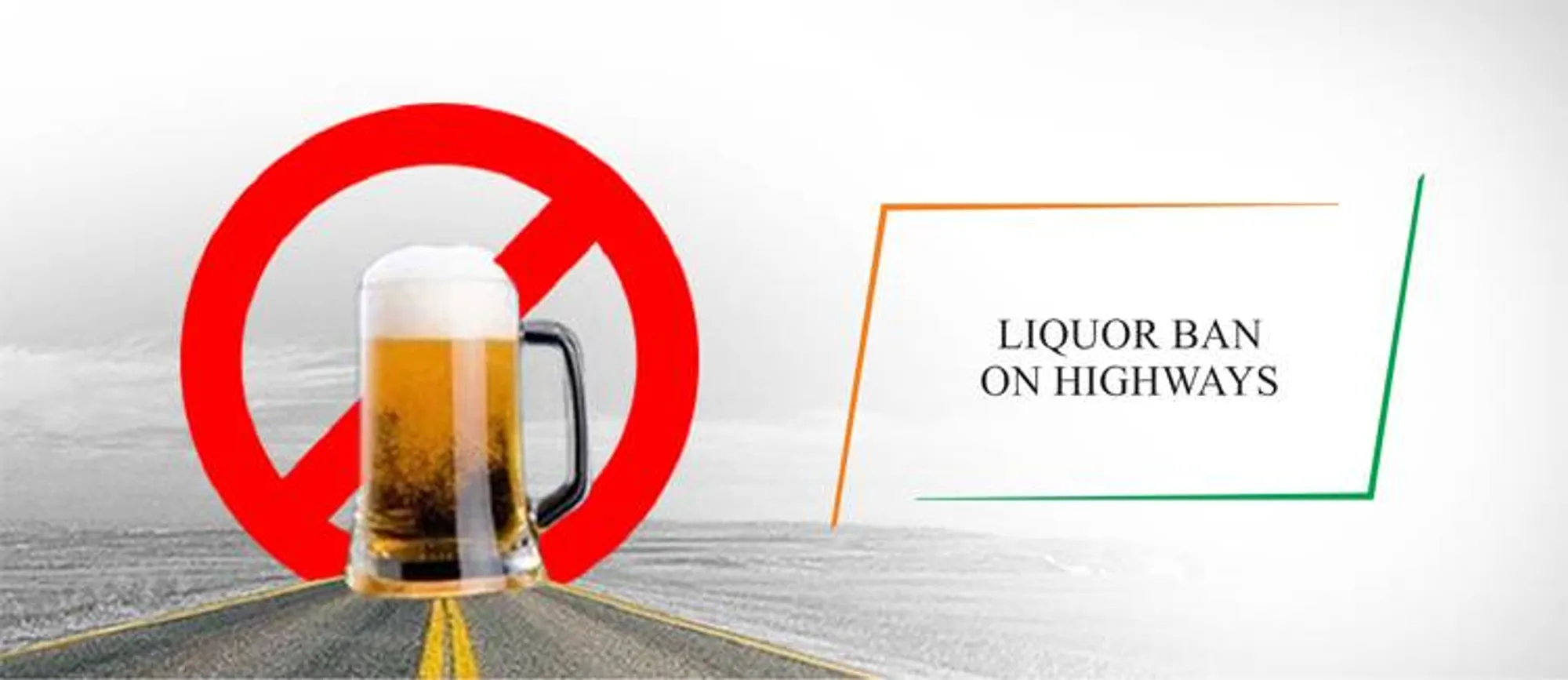“Eat, Drink and Be Merry,” only if the Government lets you!
There is no denying the fact that the ban imposed by the Government on liquor sale along the National Highway came as a rude shock to many all over the nation.
As per the Supreme Court, alcohol vendors within 500 meters of all the national highways can’t sell liquor now.
- However, close to this ruling, the court recently did state that the roads within cities are not to be considered national highways, which has saved several vendors in these areas from the impacts of the blanket ban on liquors.
- The idea behind the prohibition is to limit the drunken drivers from entering the national highways.
The impact of the ban is manifold and has multiple facets. Liquor has been regarded as a social menace, and several prominent leaders have always supported the complete ban on alcohol. Although the positives of the recently enforced prohibition are prominent, realistically, there could be some negatives that could impact numerous aspects of the economy.

Table of Contents
What’s good about the Liquor Ban?
Normally, liquor ban is expected to bring about the following social positives in society:
- Reduction in the number of Road Accidents
- Decline in domestic violence and family financial drain
- Decrease in Crime
- Decline in alcohol addiction
- Improvement in quality of life
What happens to the Revenue/ Economy?
The truth is that in India Alcohol contributes in a big way to the Economy – in fact it could be said to be one of the biggest industries in the country.
It generates a huge amount of revenue.
It has been stated that the country will suffer an impact of INR 65000 crores. This is because of the following reasons:-
Drop in Tourism:
- The ban on liquors has a significant influence on the tourism of the country.
- The foreigners visiting places like Goa, Kerala, etc. have reduced due to the ban.
- Consequently, the tourism sector is bound to suffer.

Generation of unemployment:
- The prohibition of alcohol has led to rising unemployment.
- The vendors who lost the license have been left jobless and also the decline in tourism has resulted in a drop in the earnings of the local people.
- For example, the small restaurants and beach huts have less or no customers as the number of visitors is dropping.
- It is feared that over 1 million jobs could be lost in the hospitality sector. What the exact figures would be, post the latest notification regarding roads inside the city remains to be seen.
- In purely economic terms, what could happen eventually is that lower employment / laying off workers will lead to lower consumption patterns in the economy which in turn could lead to lower GDP in the long run
Reduction in revenue:
- The trade of alcohol plays a direct and indirect role in the generation of revenue; directly via liquor tax and indirectly through tourism.
- While the ban could result in a reduction in what is known as “binge drinking,” the fact remains that Central and State revenues could suffer deficits.
- In an economy which is seeking to attract foreign investment by projecting a booming fiscal scenario, it could trigger off a negative impact
- Alcohol contributes to nearly 25% of revenue in states – the ban could bring about a deficit of over billions of rupees.
- This reduction comes hugely from the reduction in taxes that is expected to hit the economy, post the ban.
- Considering that some Indian States are battling with reduced revenues and increasing spending.

Share Prices:
- It is but natural that share prices of the sector will get hit and over a longer duration, these sectors could project a lower growth chart.
Black-marketing of Alcohol:
- The prohibition of alcohol compels people to buy from unauthorized places or shops far-off from the highways.
- This increases black-marketing, and people have even started preparing alcohol at homes, which are in fact fatal.
Interesting!!
Did you think – Real estate development could be hit too?
- We might not give it due consideration, but the fact is that Real Estate developers develop projects based on certain notions about the surrounding areas.
- Commercial projects that are near the highways (read ‘roads’) have a higher evaluation regarding property prices.
- In the changed scenario, this factor diminishes and a cumulative effect could be felt-meaning thereby that the valuation due to proximity to highways and subsequent development of other ancillary properties or services could take a huge hit.

